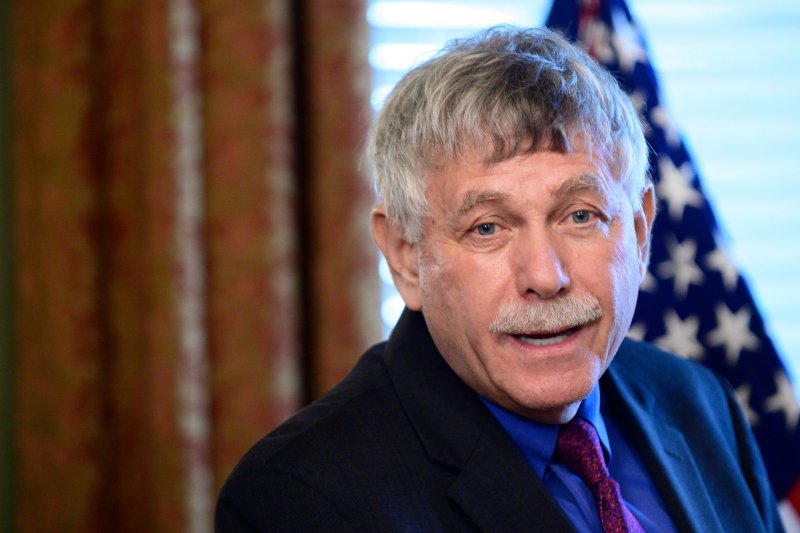
Eric Lander, director of the Office of Science and Technology Policy, said violations of scientific integrity may be small, but they can significantly "undermine federal decision-making and public trust in science." File Photo by Erin Scott/UPI | License Photo
Jan. 11 (UPI) -- A report released Tuesday from the White House Science Integrity Task Force says its wants to restore trust in government through scientific integrity and evidence-based policymaking.
The 67-page report said the task force seeks to "ensure that science is conducted, managed, communicated and used in ways that preserve its accuracy and objectivity and protect it from suppression, manipulation and inappropriate influence -- including political interference."
The task force, part of the White House Office of Science & Technology Policy, makes no mention of COVID-19 but maintaining the public's trust in scientific-based information about coronavirus, for example, has been a challenge since President Joe Biden's administration took office a year ago.
Former President Donald Trump and his supporters frequently attacked scientists and health officials during the pandemic. At an October 2020 rally in Arizona, for example, Trump mocked Dr. Anthony Fauci, director of the National Institute of Allergy and Infectious Diseases, and downplayed the effects of COVID-19.
Environmentalists and climate scientists expressed concern about the Trump administration's policies, accusing officials of spreading false information about climate change. In one example, Trump used a Sharpie on Sept. 4, 2019, to expand the projected path of Hurricane Dorian.
Biden's science adviser, Eric Lander, director of the Office of Science and Technology, said, "The health, safety, and prosperity of the American people depend on reliable, technically sound policies and communications from the federal government. This report is a comprehensive federal assessment of what's needed to protect science -- and scientists and technologists -- within the U.S. government, and a clear government-wide policy statement calling for decision-making at all levels to be informed by science without interference."
While violations of scientific integrity are small, Lander said they can significantly "undermine federal decision-making and public trust in science."
Biden's science adviser, Eric Lander, director of the Office of Science and Technology, said, "The health, safety, and prosperity of the American people depend on reliable, technically sound policies and communications from the federal government. This report is a comprehensive federal assessment of what's needed to protect science -- and scientists and technologists -- within the U.S. government, and a clear government-wide policy statement calling for decision-making at all levels to be informed by science without interference."
While violations of scientific integrity are small, Lander said they can significantly "undermine federal decision-making and public trust in science."
The report called for the need to deter "inappropriate influence in the conduct, management, communication and use of science." It also urges all federal agencies to develop, implement and periodically update scientific integrity policies.
Among many recommendations, the report called for protecting the integrity of the research process that includes shielding data collection and analysis from interference; encouraging legitimate scientific debates while minimizing disputes that serve a desired outcome or interest; encouraging continued professional development of federal scientists; and applying conflict-of-interest rules to all those involved in the conduct, management, communication and use of science, including those on scientific advisory committees.
The report also said scientific integrity policies should be modernized to address important, emergent issues of our time.
Those policies, the task force said, "must advance diversity, equity, inclusion, and accessibility; address new concerns arising from the use of emerging technologies such as artificial intelligence and machine learning; and apply to emerging modes of science, such as citizen science and community-engaged research with Federal involvement."
No comments:
Post a Comment